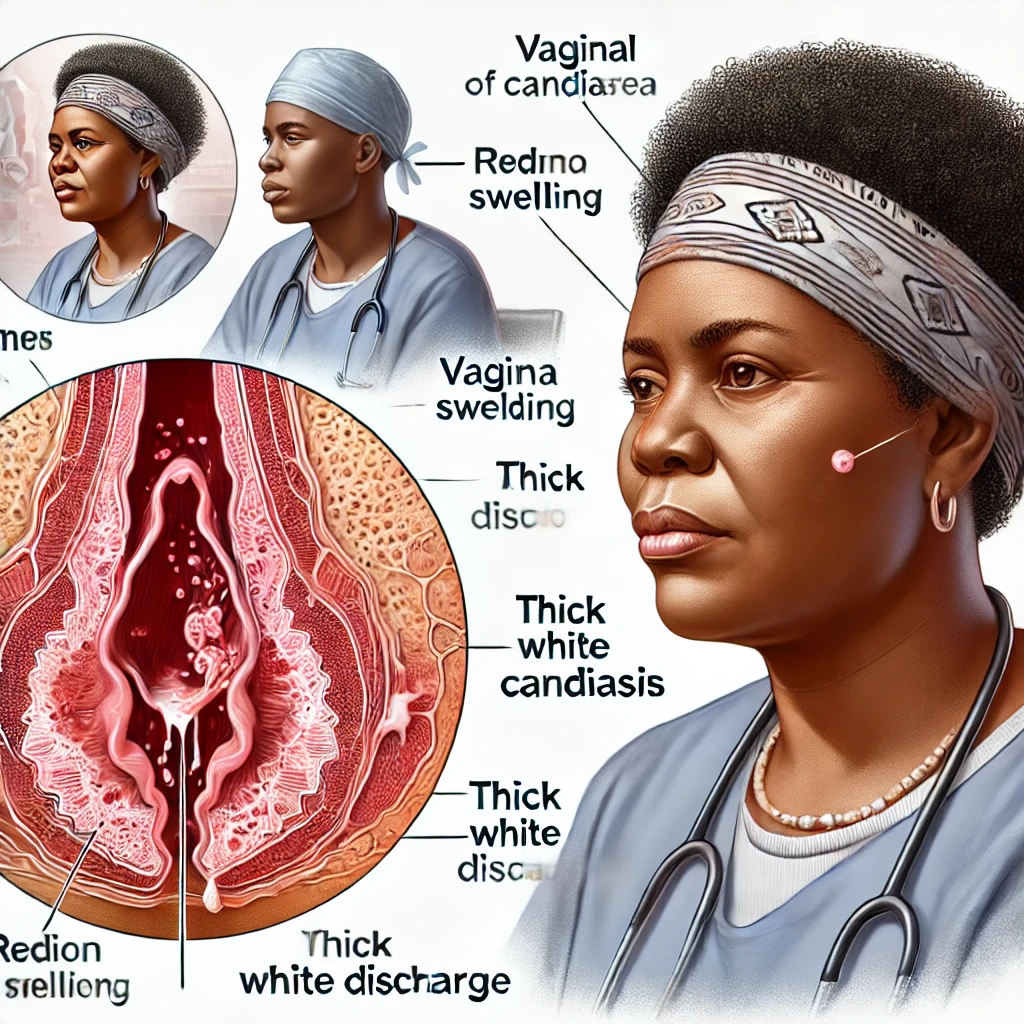Yeast Infections: Recognizing and Treating Vaginal Candidiasis
Vaginal yeast infections, also known as vaginal candidiasis, are common fungal infections caused by an overgrowth of Candida, a type of yeast naturally present in the vagina. While not considered a sexually transmitted infection, vaginal yeast infections can cause significant discomfort and require prompt treatment to alleviate symptoms and prevent recurrence.
Causes of Vaginal Candidiasis
Several factors can contribute to the overgrowth of Candida, leading to a yeast infection. These include:
- Antibiotic Use: Antibiotics can disrupt the natural balance of bacteria and yeast in the vagina, allowing Candida to multiply.
- Hormonal Changes: Fluctuations in hormone levels, such as those occurring during pregnancy, menstrual cycles, or hormone therapy, can create an environment conducive to yeast overgrowth.
- High Sugar Diets: Excessive sugar intake can promote yeast growth, as Candida thrives on sugar.
- Weakened Immune System: Conditions that compromise the immune system, such as diabetes or HIV, can increase the risk of yeast infections.
- Tight or Non-Breathable Clothing: Wearing tight, non-breathable clothing can create a warm, moist environment that encourages yeast growth.
Recognizing Symptoms of Vaginal Yeast Infections
Understanding the symptoms of a yeast infection is crucial for timely diagnosis and treatment. Common symptoms include:
- Intense Vaginal Itching: Persistent itching in and around the vagina is a hallmark symptom of a yeast infection.
- Burning Sensation: A burning sensation, especially during urination or sexual intercourse, can occur.
- Redness and Swelling: The vulva may appear red and swollen, often accompanied by soreness.
- Thick, White Vaginal Discharge: The discharge associated with yeast infections is typically thick, white, and odorless, resembling cottage cheese.
Diagnosis and Treatment
If you suspect you have a yeast infection, it is essential to consult a healthcare provider for an accurate diagnosis. Self-diagnosis can lead to incorrect treatment, as other conditions may present with similar symptoms.
Diagnosis: A healthcare provider can diagnose a yeast infection through a pelvic exam and by testing a sample of vaginal discharge. This helps to confirm the presence of Candida and rule out other infections.
Treatment: Treatment for yeast infections generally involves antifungal medications. These can be administered in various forms, including:
- Topical Creams and Ointments: Applied directly to the affected area, these medications help alleviate symptoms and eliminate the infection.
- Oral Tablets: Oral antifungal medications are an effective treatment option, especially for recurrent infections.
- Suppositories: Inserted into the vagina, suppositories deliver antifungal medication directly to the site of infection.
Over-the-counter options are available, but it is advisable to seek professional guidance for proper diagnosis and treatment, especially for recurrent or severe infections.
Prevention
Preventing yeast infections involves adopting certain lifestyle and hygiene practices:
- Wear Breathable Clothing: Opt for loose-fitting, cotton underwear and avoid tight pants to reduce moisture buildup.
- Maintain Good Hygiene: Keep the vaginal area clean and dry, and avoid douching, which can disrupt the natural balance of bacteria and yeast.
- Limit Sugar Intake: Reducing sugar consumption can help prevent yeast overgrowth.
- Use Probiotics: Incorporating probiotics into your diet, either through supplements or fermented foods, can promote a healthy balance of bacteria in the vagina.
- Avoid Prolonged Antibiotic Use: Only use antibiotics when necessary and follow your healthcare provider’s instructions to minimize disruption to the natural flora.
Consult Virtual Doctors for Professional Advice
For accurate diagnosis and effective treatment of yeast infections, consider consulting a healthcare professional through the Virtual Doctors App (www.virtualdoctors.ng). This app provides a convenient and confidential way to seek medical advice from qualified doctors, ensuring you receive the best care for managing and preventing vaginal yeast infections.
Vaginal yeast infections are common but manageable with the right knowledge and treatment. Recognizing the symptoms, understanding the causes, and implementing preventive measures can help maintain vaginal health. For personalized medical advice and treatment, consulting healthcare professionals via the Virtual Doctors App offers a reliable and accessible solution. Taking charge of your health starts with staying informed and seeking professional guidance when needed.
Download Virtual Doctors App on Google Play Store now by clicking here and book an appointment with a specialist.
Using iOS or PC? Visit www.virtualdoctors.ng/account to schedule your appointment today.
